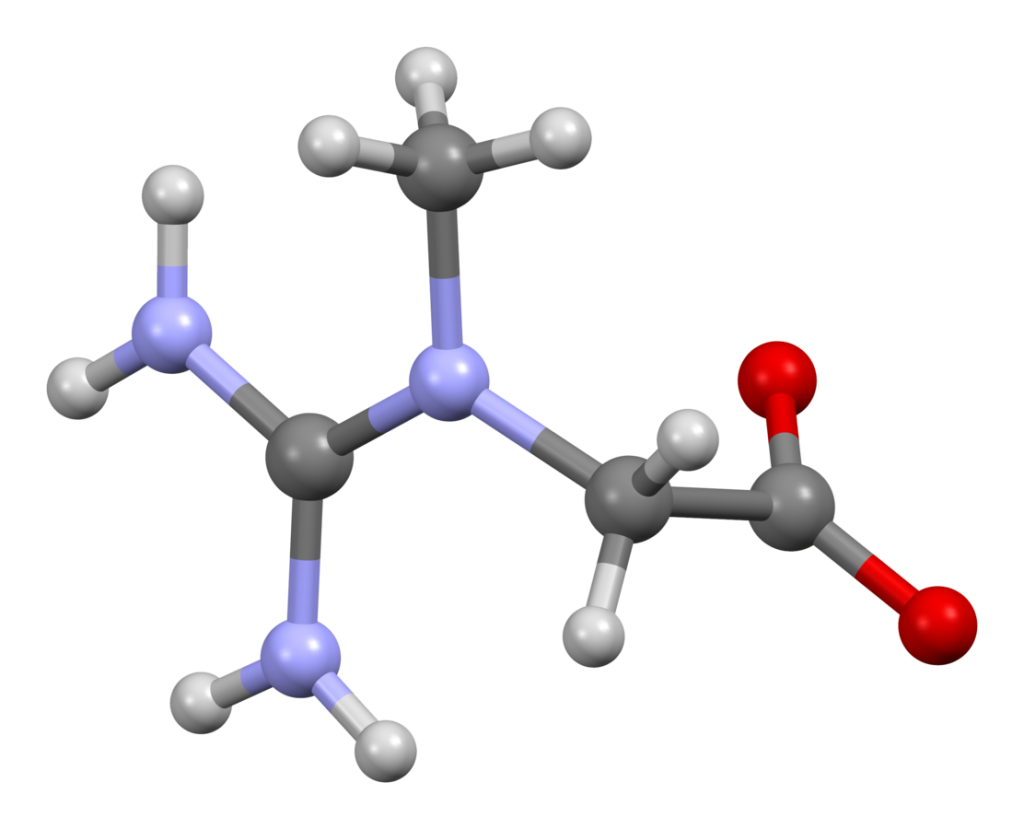Creatine, a popular dietary supplement, continues to thrive in the market as a sought-after performance enhancer. Sellers, both online and in brick-and-mortar stores, are capitalizing on the growing demand for this ergogenic aid. Athletes, bodybuilders, and fitness enthusiasts are actively looking to buy creatine products to boost their exercise performance.
Online vendors, in particular, have expanded their presence, offering a wide array of creatine formulations, including monohydrate, hydrochloride, and ethyl ester variants. This diverse range caters to consumers seeking specific benefits and convenience.
While creatine remains a widely accepted supplement, it’s essential to distinguish it from designer drugs or research chemicals that have raised concerns in recent years. Unlike these potentially dangerous substances, creatine is a well-researched compound with a proven track record of safety and effectiveness.
For those seeking creatine for sale, it’s crucial to prioritize reputable vendors and established brands. This ensures the quality and purity of the product, mitigating the risks associated with counterfeit or adulterated supplements.
In summary, the market for creatine is flourishing as consumers actively buy products from trustworthy sellers, both online and offline. However, customers should exercise caution and awareness to differentiate creatine from potentially harmful designer drugs or research chemicals.
Contents
- 1 Summary
- 2 Chemistry
- 3 Pharmacology
- 4 Subjective effects
- 5 Toxicity
- 6 Legal status
- 7 FAQ
- 7.1 1. What is creatine, and what does it do?
- 7.2 2. How does creatine supplementation work?
- 7.3 3. Is creatine safe to use?
- 7.4 4. What are the common forms of creatine supplements?
- 7.5 5. How should I take creatine supplements?
- 7.6 6. When is the best time to take creatine?
- 7.7 7. Do I need to cycle creatine?
- 7.8 8. Can creatine cause weight gain?
- 7.9 9. Is creatine suitable for vegetarians and vegans?
- 7.10 10. Are there any contraindications or interactions with medications?
- 8 References
Summary
Creatine, along with its various derivatives like hydrochloride, malate, and nitrate, is a nitrogenous organic acid renowned for its nootropic properties. This naturally occurring compound is found in the bodies of vertebrates and select food sources such as meat, eggs, and fish. Its discovery dates back to 1832, attributed to Michel Eugène Chevreul, who isolated it from the alkali-treated water extract of skeletal muscle. The name “creatine” was later bestowed upon the crystallized substance, drawing inspiration from the Greek word for meat, “κρέας” (areas). An intriguing aspect of this compound is that human blood typically contains approximately 1% creatine.
Creatine plays a pivotal role in energizing all cells, with a primary focus on muscle tissue. When utilized as a supplement in humans, creatine exhibits a spectrum of benefits, including cognitive enhancement, neuroprotection, cardioprotection, and performance enhancement. These effects are particularly pronounced during intense physical exertion. As a result, creatine enjoys widespread popularity among athletes and bodybuilders, who leverage its capabilities to augment power output and promote lean muscle mass growth.
| Identifiers | |
|---|---|
| CAS Number | 57-00-1 |
| 3D model (JSmol) | Interactive image |
| 3DMet | B00084 |
| Beilstein Reference | 907175 |
| ChEBI | CHEBI:16919 |
| ChEMBL | ChEMBL283800 |
| ChemSpider | 566 |
| DrugBank | DB00148 |
| ECHA InfoCard | 100.000.278 |
| EC Number | 200-306-6 |
| Gmelin Reference | 240513 |
| KEGG | C00300 |
| MeSH | Creatine |
| PubChemCID | 586 |
| RTECS number | MB7706000 |
| UNII | MU72812GK0 |
| CompTox Dashboard(EPA) | DTXSID1040451 |

Chemistry
Creatine is an endogenously produced nitrogenous amino acid, also synthesized for external consumption. Its molecular structure comprises an acetic acid group, a two-carbon chain with a ketone and hydroxyl group on one carbon. This sour acid group connects at R2 to a methyl-substituted amine group, which, in turn, bonds to a carbon atom with one double-bonded nitrogen and one single-bonded nitrogen constituent.
Synthetic creatine is typically derived from the combination of sarcosine (or its salts) and cyanamide in a reactor with catalyst compounds. The reactor undergoes heating and pressurization, leading to the formation of creatine crystals. Subsequently, these crystalline creatine particles are purified using centrifugation and vacuum drying techniques. The resulting dried creatine compound is finely milled into a powder, enhancing its bioavailability. Various milling methods exist, yielding products with differing solubility and bioavailability. For example, creatine compounds milled to 200 mesh are commonly referred to as micronized creatine.
Pharmacology
Creatine is an innate compound that stores high-energy phosphate groups in the shape of phosphocreatine or creatine phosphate. When the body undergoes stress or intense physical activity, phosphocreatine discharges energy to support cellular functions. This phenomenon not only contributes to the enhanced strength observed following creatine supplementation but also lends support to various bodily systems, including the brain, skeletal system, muscles, and liver. The majority of creatine’s advantages stem from this fundamental mechanism.

Subjective effects
Disclaimer: The effects mentioned below are based on anecdotal user reports and the personal analyses of contributors to the Subjective Effect Index (SEI), an open research literature. Therefore, it is advisable to approach them with a degree of skepticism.
Additionally, it’s important to note that these effects may not necessarily occur consistently or predictably. Higher doses are more likely to elicit a broader range of products. Moreover, as quantities increase, the risk of adverse effects also rises, potentially including addiction, severe injury, or even death ☠.
When compared to other nootropics like noopept, this compound can be characterized by its ability to provide both physical and cognitive stimulation.
Physical:
- Stimulation: Creatine’s motivation is described as subtle yet persistent and energetic, somewhat akin to caffeine but less forceful.
- Perception of bodily lightness: Creatine’s impact on overall weight, often due to water retention, is more of a physical change than an altered perception. The extent of this change varies with dosage.
- Headaches
- Muscle spasms
- Stomach cramps
- Dehydration
- Diarrhea Sensory Effects
- Appetite enhancement
- Bodily control enhancement
- Stamina enhancement
- Tactile enhancement
Cognitive:
- Wakefulness
- Rejuvenation
- Anxiety suppression
- Thought connectivity
- Thought organization
- Focus enhancement
- Analysis enhancement
- Motivation enhancement
- Memory enhancement
- Irritability
Toxicity
There are no clinically significant immediate side effects associated with creatine supplementation. Numerous trials conducted with varying dosages in humans have shown limited side effects, which primarily include gastrointestinal discomfort resulting from excessive creatine consumption at once and cramping due to inadequate hydration.
Studies employing typical creatine supplementation dosages, around 5 grams per day following an initial loading period, have observed an increase in total body water by 6.2% (equivalent to 3.74 pounds) over nine weeks and 1.1 kilograms (about 2.42 pounds) over 42 days. This increase in body water may explain creatine’s capacity to give the perception of increased body weight.
Nonetheless, it is strongly advised that individuals familiarize themselves with harm-reduction practices when using creatine.
Tolerance and Addiction Potential
Creatine is not habit-forming and has a low potential for abuse. It does not appear to induce psychological or physiological dependence in users.
Unlike most other psychoactive substances, tolerance to the effects of creatine does not develop with continued use. Numerous anecdotal reports indicate that individuals have used this substance for extended periods without experiencing tolerance buildup.
Legal status
Creatine is widely accessible for possession and distribution, and it is sanctioned as a dietary supplement in the majority of countries.
FAQ
1. What is creatine, and what does it do?
- Creatine is a naturally occurring compound found in small amounts in certain foods and synthesized in the body. It plays a crucial role in providing energy to muscles during short bursts of high-intensity activities like weightlifting and sprinting. As a dietary supplement, it is commonly used to enhance athletic performance.
2. How does creatine supplementation work?
- Creatine supplements increase the body’s creatine phosphate stores, allowing for a rapid production of adenosine triphosphate (ATP), which is essential for muscle contractions. This leads to improved exercise performance, strength, and muscle growth.
3. Is creatine safe to use?
- Yes, creatine is generally considered safe when used as directed. Numerous studies have shown no serious side effects associated with creatine supplementation. However, it’s essential to follow dosage recommendations and stay well-hydrated to minimize the risk of potential side effects like cramping and gastrointestinal discomfort.
4. What are the common forms of creatine supplements?
- The most common form is creatine monohydrate, but there are also variations, such as creatine hydrochloride and creatine ethyl ester. Creatine monohydrate is widely regarded as the most researched and effective form.
5. How should I take creatine supplements?
- Typically, a “loading phase” involves taking 20 grams of creatine per day (in divided doses) for 5-7 days, followed by a maintenance phase of 3-5 grams per day. Some people skip the loading phase and directly start with the maintenance dose.
6. When is the best time to take creatine?
- Creatine can be taken at any time during the day. Many people prefer taking it post-workout, mixed with a carbohydrate source, to enhance absorption.
7. Do I need to cycle creatine?
- No, creatine does not require cycling. You can take it consistently without the need for breaks.
8. Can creatine cause weight gain?
- Creatine may lead to a temporary increase in water weight due to improved muscle hydration. This weight gain is usually minor and temporary.
9. Is creatine suitable for vegetarians and vegans?
- Yes, creatine is often found in small amounts in animal products, but it can also be synthesized from non-animal sources and is suitable for vegetarians and vegans.
10. Are there any contraindications or interactions with medications?
- In general, creatine does not have significant interactions with medications. However, it’s advisable to consult with a healthcare professional if you have concerns about potential interactions with specific drugs or health conditions.
Remember that individual responses to creatine may vary, and it’s always a good idea to consult with a healthcare provider or a sports nutrition expert before starting any supplementation regimen.
References
1. Hezave, A. Z., Aftab, S., Esmaeilzadeh, F. (November 2010). “Micronization of creatine monohydrate using Rapid Expansion of Supercritical Solution (RESS)”. Published in The Journal of Supercritical Fluids. Volume 55, Issue 1, Pages 316–324. doi:10.1016/j.supflu.2010.05.009. ISSN 0896-8446.
2. Sahlin, K., Harris, R. C. (May 2011). “The creatine kinase reaction: A straightforward process with intricate functionality”. Published in Amino Acids. Volume 40, Issue 5, Pages 1363–1367. doi:10.1007/s00726-011-0856-8. ISSN 0939-4451.
3. Francaux, M., Poortmans, J. R. (June 1999). “Impacts of training and creatine supplementation on muscle strength and body mass”. Published in the European Journal of Applied Physiology and Occupational Physiology. Volume 80, Issue 2, Pages 165–168. doi:10.1007/s004210050575. ISSN 0301-5548.